Sea ports are strong nodes of the TEN-T network guaranteeing the EU’s energy security
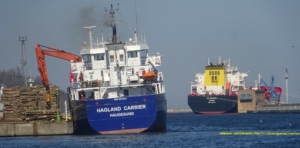
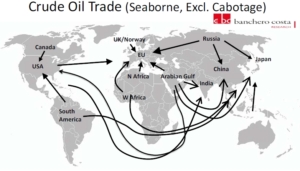
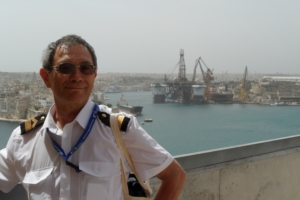 By Marek Grzybowski
By Marek Grzybowski
The Parliament and the Council of the EU reached an agreement on the revision of the regulation on the trans-European transport corridors TEN-T in December 2023. The new regulation amends the previous regulation from 2013. The most important EU institutions emphasize that ports play an important role as important nodes of the European transport network.
– The European Sea Ports Organization (ESPO) strongly supports the decision of EU regulatory authorities to include ports in the European TEN-T transport network – emphasizes the ESPO management in a statement.
In line with the agreement reached and ESPO’s suggestions over the years, the port’s position in the TEN-T network will now be assessed not only on the basis of tonnes handled, but also on its contribution to the energy transition.
The revised TEN-T regulation should put the transport sector on a path to reducing emissions by 90%. It responds to the need to improve connections across Europe, increase the resilience of the transport system, and shift more passengers and goods to sustainable modes of transport.
The idea is to focus activities on sustainable urban mobility, in a communication the European Commission explains the essence of changes in EU transport networks.

A course towards sustainable development
The new guidelines postulate that in order to supplement the missing connections and modernize the entire network, quality standards should be raised. One of the basic goals is to undertake modernization activities on railway connections. As a result, by 2040, the main TEN-T passenger railway lines should enable trains to run at speeds of 160 km/h or more.
Attention was also paid to the development of inland navigation. Canals and rivers should be regulated to ensure good navigation conditions for the maximum number of days a year. Land, inland and sea transshipment terminals need to be improved.
– Today’s agreement is a milestone on the way to better and sustainable connectivity in Europe. The TEN-T guidelines are a key instrument of EU transport policy that will significantly contribute to strengthening EU cohesion and stimulating economic growth and jobs, said Óscar Puente, Spanish Minister of Transport and Sustainable Mobility, after announcing the changes introduced to the TEN network -T.
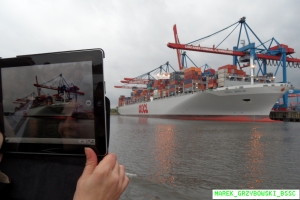
Key ports in the energy transformation
ESPO notes that European ports play a key role in Europe’s energy transformation and security of energy supply. They are building and strengthening supply chains for the new energy system.
Significant efforts and investments are needed because new energy sources pose specific needs in terms of transport, infrastructure, connections, storage and new supply chains.
– Ports are adapting to new realities and adapting and developing their infrastructure and processes accordingly. It is important that European legislation does the same and supports ports in their efforts to generate high added value for European society, emphasizes ESPO management.
– Even if volumes and tonnes remain an important indicator for ports as nodes in the logistics chain, it is no longer the only indicator of performance. The decision to include ports playing an important role in energy supplies in the TEN-T network is a huge step forward, says ESPO Secretary General Isabelle Ryckbost.
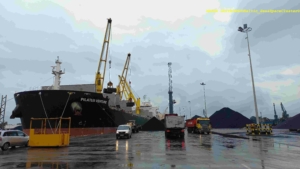
Energy raw materials – an important commodity
Ryckbost notes that the action of the EU Parliament and Council proves that legislators recognize [energy raw materials – Ministry of Economy] as an important commodity, and ports play a key role both in ensuring Europe’s energy security and the energy transformation. According to the Secretary General of ESPO, the economic importance of supplies of energy raw materials should not always be counted in tons.
It is up to the European Commission and Member States to implement the new regulations in practice and provide TEN-T status to ports that meet the energy criterion set out in the new regulation (in Article 24).
The new agreement also includes more ambitious requirements for rail, including for port rail networks. – ESPO welcomes the strengthening and focus on strong rail connections, notes the organization of European ports. It is noted that when implementing new requirements for railway networks in ports, Member States and the Commission should take into account the specificity of a given port.
As the text of the agreed regulation is still not publicly available, ESPO states that it looks forward to the publication of the final text.
ESPO is preparing an update of the study on port investments made until 2018. This aims to identify the investment needs of European ports in terms of infrastructure, both in terms of investment categories and investment amounts. The updated study will be presented during the TEN-T Days, which will take place from April 2 to 5 in Brussels.
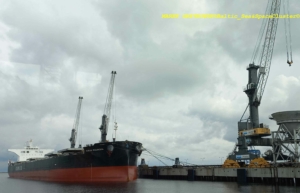
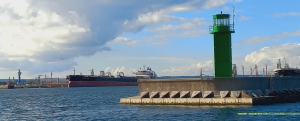
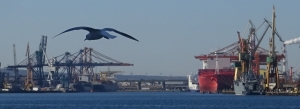
Polish ports are important TEN-T nodes
Let us recall that many modernization investments have been made in Polish ports and their surroundings and more are planned. The reconstruction of the Port Gdynia station and its adaptation to the highest standards and the modernization of the railway and road networks in the Port of Gdańsk are flagship investments in land infrastructure.
Deepening the passage to the port in Szczecin is a new quality in inland infrastructure. The deepening of the port in Gdynia and increasing the diameter of the turntable will also expand the offer for ships entering the container terminals.
The construction of the T3 terminal in the Baltic Hub, the decision to build a container terminal in Świnoujście and a breakwater in Gdynia, with the prospect of building an external terminal, are further investments strengthening the position of Polish ports in the TEN-T network.
Investments by the Maritime Office in Gdynia and Szczecin played an important role in increasing the quality of ship service and navigation safety. Increased reloading capacity of the LNG terminal in Świnoujście and expansion of the fuel base in Gdynia are investments that are part of the European program to increase the role of ports in the EU’s energy security. We can see the real ability of our ports to contribute to strengthening the infrastructure ensuring energy security by observing the statistics of transshipment of energy raw materials, coal, crude oil and fuels, which have been growing dynamically in recent years.
Including ports in the TEN-T network will increase the importance of these important nodes connecting the European transport network with the global logistics network. Funds for development and modernization investments will be directed towards the modernization and expansion of ports. Much attention will be focused on increasing the role of terminals ensuring energy security. Therefore, there is a chance to obtain funds for the construction of an FSRU in the Bay of Gdańsk and the expansion of critical infrastructure in our ports related to the supply of energy raw materials.
